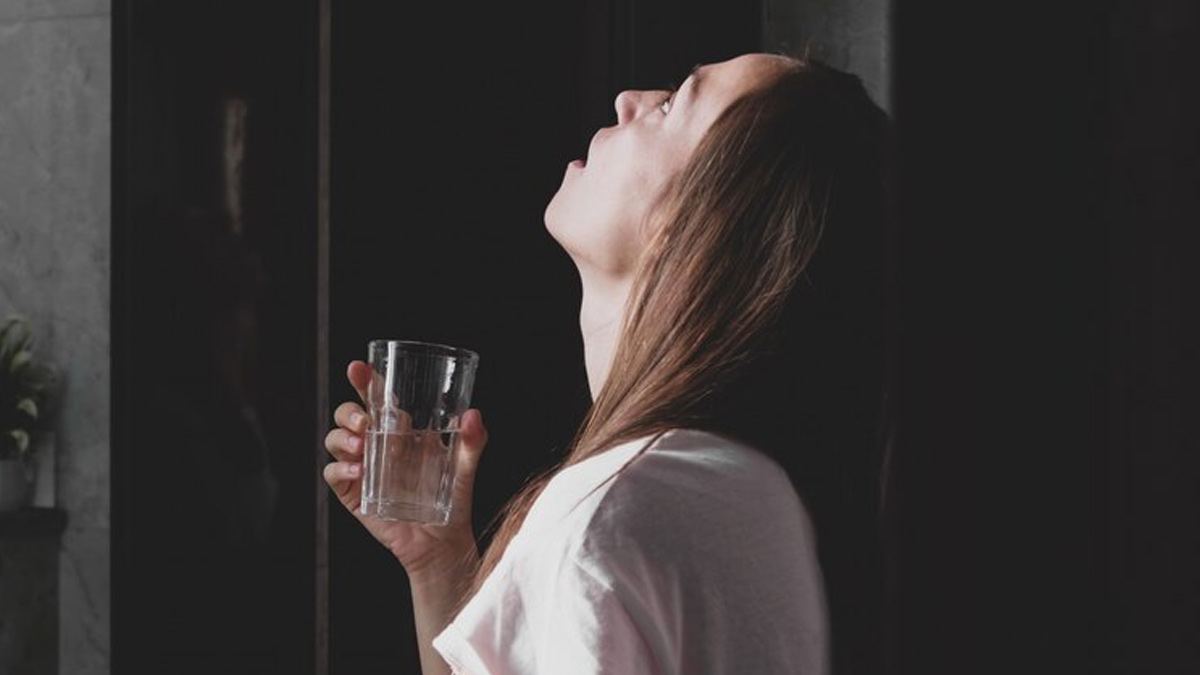
The world order of toothbrushing is set as: brush, spit, and rinse. You might be doing the same for years now. The first instinct after brushing your teeth is to rinse your mouth immediately. This seems logical considering the aftertaste of the toothpaste. Although rinsing the mouth after brushing is widely practised, it may not always be a good idea. You should actually wait for some time before you rinse your mouth after brushing.
Table of Content:-
Should You Rinse Your Mouth After Brushing?
Your toothpaste contains fluoride that helps in strengthening the teeth enamel and prevents tooth decay. You can also get trace amounts of fluoride naturally from certain foods. But the application of fluoride directly to the teeth benefits the most. Thus, keeping fluoride a little longer on your teeth is most beneficial. So, when you rinse your mouth immediately after brushing your teeth with fluoride toothpaste, you are decreasing the effectiveness of fluoride and making your teeth prone to germ attacks and diseases.
A report published in the United Kingdom’s NHS portal also recommends not rinsing the mouth immediately after toothbrushing, rather it suggests spitting out the extra toothpaste. It also states that rinsing dilutes the concentrated fluoride in the toothpaste and reduces its preventive effects.

Also Read: 6 Common Brushing Habits You Need To Unlearn
Negative Effects Of Not Rinsing Mouth After Brushing
When it comes to rinsing your mouth there is some wisdom involved in it. Ingesting large amounts of fluoride should be avoided, as it can be hazardous. Too much fluoride can cause stomach discomfort, nausea, and diarrhoea. Thus, in order to avoid ingesting a substantial amount of fluoride, it became standard practice to rinse your mouth after brushing.
However, when only a pea-sized quantity of fluoride toothpaste is used, these negative effects are quite rare. These negative effects are also more likely to occur when children consume significant doses of fluoride products designed for adults, or when fluoride products intended for use in the dentist's office are used incorrectly. A healthy adult would be highly unlikely to develop any degree of fluoride poisoning merely by ingesting a tiny bit of toothpaste every now and then.
When You Should Rinse Your Mouth?
You can skip rinsing your mouth and proceed with your day, while keeping in mind to not eat or drink at least for 10 minutes after brushing your teeth. In a report published in the Journal of American Dental Association, after professional fluoride treatment, which contains greater concentrations of fluoride than toothpaste, you may be asked to not rinse, eat, or drink for at least 30 minutes following the treatment. This is to allow teeth to absorb the fluoride and repair various areas.

Also Read: Before or After Brushing: The Right Time To Floss Your Teeth
Conclusion
It is best to skip rinsing your mouth after brushing to reap the most benefit of fluoride toothpaste. You can spit the excess toothpaste out since it leaves a fluoride layer on your teeth, which helps prevent cavities. The most important thing to remember is to practise excellent dental hygiene every day.
[Disclaimer: This article is for informational purposes only and should not be taken as expert advice. In case of any doubt, talk to your dentist.]
Image Credit: freepik
Also watch this video
How we keep this article up to date:
We work with experts and keep a close eye on the latest in health and wellness. Whenever there is a new research or helpful information, we update our articles with accurate and useful advice.
Current Version